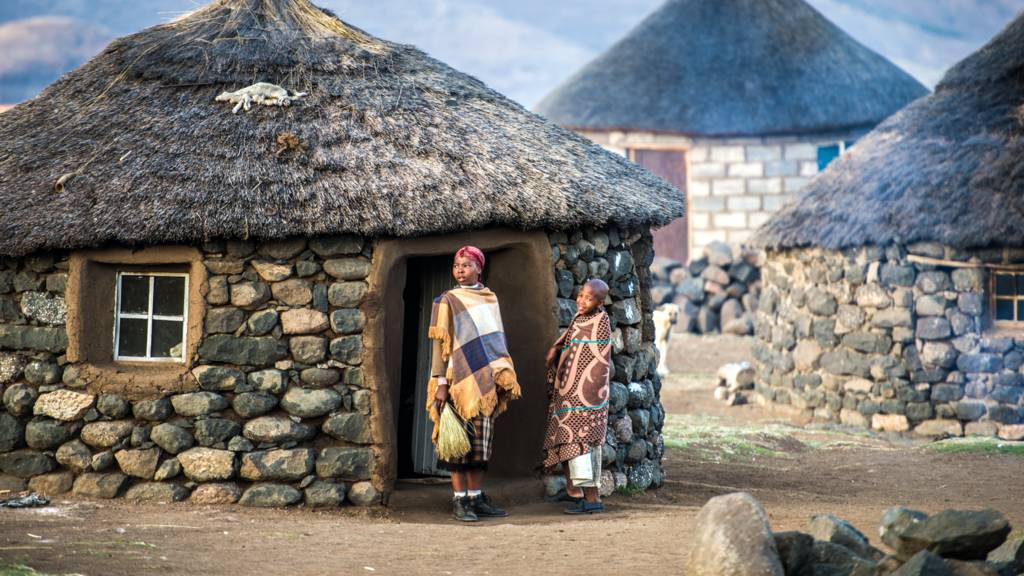
Live
Africa Live this week: 27 June-3 July 2022
Bringing you the latest news from around Africa at bbc.com/africalive. This is an automated news feed overnight and at the weekend.

Bringing you the latest news from around Africa at bbc.com/africalive. This is an automated news feed overnight and at the weekend.
Live Reporting
All times stated are UK
Get involved
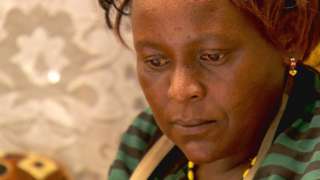
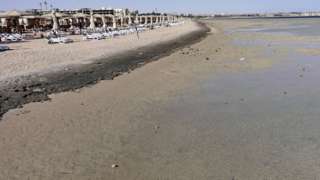
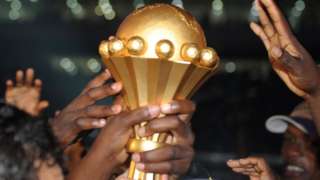
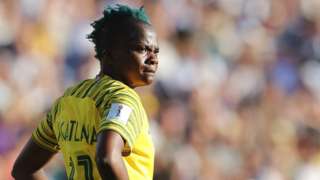
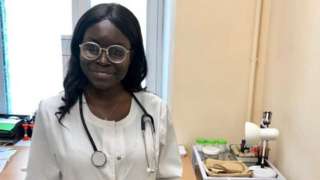
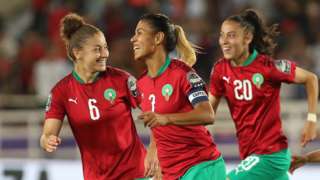
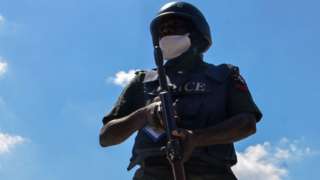
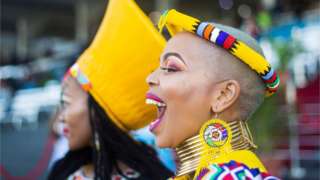
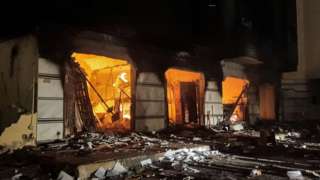
Video caption: Women's Afcon: Four players you should look out forWomen's Afcon: Four players you should look out for 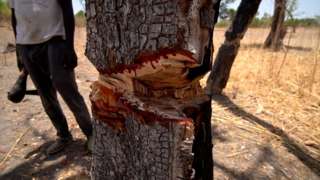
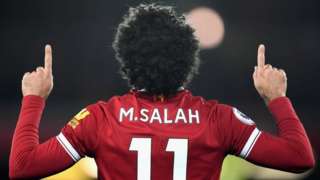
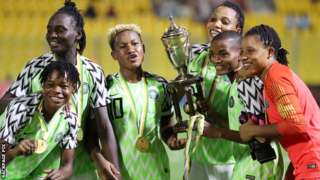
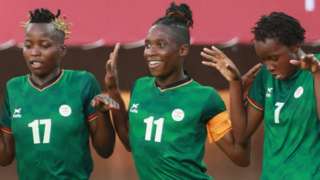
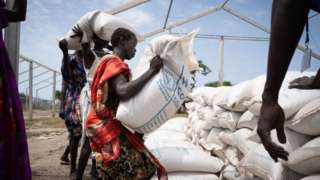

AFPCopyright: AFP 


AFPCopyright: AFP These old 10,000 leone notes are equivalent to 10 new leone billsImage caption: These old 10,000 leone notes are equivalent to 10 new leone bills 
AFPCopyright: AFP Some have been anxious to exchange their old leones into US dollarsImage caption: Some have been anxious to exchange their old leones into US dollars 

BBCCopyright: BBC 
BBCCopyright: BBC
Latest PostThis page is now closed
For the latest updates, go to bbc.com/africalive.
A mother's struggle to feed six children as prices soar
Florence Kambua has no choice but to salvage waste from a dump site in Kenya's capital to survive.
Read moreRed Sea beaches close after deadly shark attack
By Matt Murphy
BBC News
Two women tourists died after being attacked while swimming near the Egyptian city of Hurghada.
Read more2023 Africa Cup of Nations moved to 2024
By Piers Edwards
BBC Sport Africa, Rabat
The next Africa Cup of Nations will be played in Ivory Coast in 2024, and not 2023, because of weather concerns.
Read moreKgatlana relishing high-profile clash with Nigeria
South Africa striker Thembi Kgaltana says Monday's Women's Africa Cup of Nations match against reigning champions Nigeria will provide a major boost for women's football in Africa.
Read more'It's not fair': Nigeria rejects Ukraine online degrees
By Chris Ewokor
BBC News, Abuja
Distraught medical students who fled Ukraine are told their distance-learning degrees are not valid.
Read moreMorocco win opening game of the Women's Africa Cup of Nations
By Piers Edwards
BBC Sport Africa, Prince Moulay Abdellah Stadium, Rabat
Hosts Morocco opened the Women's Africa Cup of Nations with a 1-0 win over debutants Burkina Faso in the capital Rabat.
Read moreDozens freed from church awaiting 'Second Coming'
By Ishaq Khalid & Robert Plummer
BBC News
Police free 77 people from confinement in a church in south-western Nigeria.
Read moreReturn of Africa's most fashionable horse race
By Joseph Winter
BBC News
Tens of thousands of South Africans head for the Durban July after a two-year break for Covid.
Read moreLibyan protesters storm parliament building
By Robert Plummer
BBC News
Rallies take place in Tobruk, Tripoli and other cities amid anger at the country's political deadlock.
Read moreFour players to watch at 2022 Women's Afcon
Video content
The Women's Africa Cup of Nations kicks off in Morocco on 2 July.
Gambia bans timber exports to halt smuggling surge
In 2020, the BBC revealed that vast quantities of protected rosewood were being trafficked from Senegal.
Read moreWhy Salah's new Liverpool deal goes beyond football
By Rumeana Jahangir
BBC News
The "Egyptian King" has won as many, if not more, plaudits for his persona and conduct off the pitch.
Read moreWafcon returns with World Cup places at stake
By Janine Anthony
Sports writer
The Women's Africa Cup of Nations returns after a four-year absence, expanded to 12 teams and with World Cup qualification at stake.
Read moreZambia rocked as skipper Banda ruled out of Wafcon
Zambia's 2022 Women's Africa Cup of Nations hopes are dealt a major blow as captain Barbra Banda is ruled out for medical reasons on the eve of the tournament.
Read moreChildren starve in South Sudan after food aid cut
By Emmanuel Igunza
BBC News
Some 60% of the country's population faces severe acute food insecurity amid food aid cuts, aid workers say.
Read moreScroll down for this week's stories
We'll be back on Monday morning
That's all for now from the BBC Africa Live team this week. There will be an automated news feed until we're back on Monday morning at bbc.com/africalive.
You can also keep up to date on the BBC News website, or by listening to the Africa Today podcast.
A reminder of our wise words of the day:
Click here to send us your African proverbs.
And we leave you with this picture of a brass band playing in honour of murdered independence hero Patrice Lumumba in the Democratic Republic of Congo ahead of the burial of his last known remains. It is one of our favourites from our gallery of the week's best photos:
Petrol pumps running dry in Mozambique
Jose Tembe
BBC News, Maputo
Two of the main petrol suppliers in Mozambique have stopped selling fuel.
The supply at Puma and Vivo Energy pumps began dwindling two weeks ago.
Fuel prices in Mozambique are regulated – and the firms have indicated they cannot afford to sell diesel or petrol until the government raises the pump price.
According to the ministry that regulates the sector, the new prices should have been published 15 days ago.
Petrol stations fear government debt may exceed the guarantees needed from banks to import the fuel.
Sierra Leone knocks three zeros off its bank notes
Azeezat Olaoluwa
BBC News
Sierra Leone has knocked three zeros off its banknotes with the launch of a new currency.
The leone is being replaced by the “new leone”, so an old 10,000 leone note has the same value as a 10 new leone bill (the equivalent of just less than $1 or £0.60).
Coins are also going to be re-introduced.
According to Ibrahim Stevens, deputy governor of the Bank of Sierra Leone, the currency redenomination will not affect the purchasing power of the currency.
But some are afraid their financial situation could worsen.
Many scrambled to change their money into US dollars in the build-up to the official release of the new leones on Friday.
Banks are expected to work till late into Friday evening in order to allow more people to change their cash.
The West African country’s economy is unstable because of rising inflation, foreign exchange fluctuations and a huge dependence on imports.
The prices of food items have more than doubled in the last six months.
First Igbo translation of Quran published in Nigeria
Ishaq Khalid
BBC News, Abuja
The first translation of the Quran into the Igbo language has been published in Nigeria.
It was launched at an event in the capital, Abuja, at the Ansar-Ud-Deen Mosque, where Muhammad Murtala Chukwuemeka told the BBC it took him five years to translate the sacred Islamic text into Igbo from Arabic.
Igbo is primarily spoken in south-eastern Nigeria, where the majority of people tend to be Christians. Nigeria is Africa’s most-populous nation and has a mainly Muslim population in the north, with the south being largely Christian.
However some members of the Igbo community follow other religions - and not all Igbos live in the south-east.
Mr Chukwuemeka converted to Islam in 1989 and later studied to become an Islamic cleric.
He says he has printed hundreds of copies of the Quran in Igbo as he wants to spread the “message of Allah” to his Igbo brothers and sisters.
The Quran has already been translated into Hausa and Yoruba - the two other most-widely spoken languages in Nigeria.